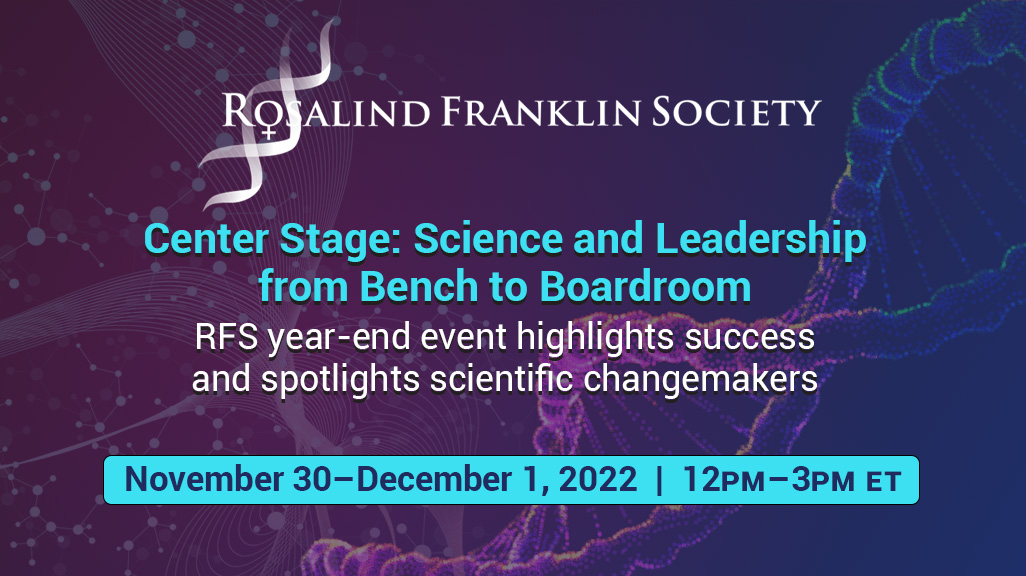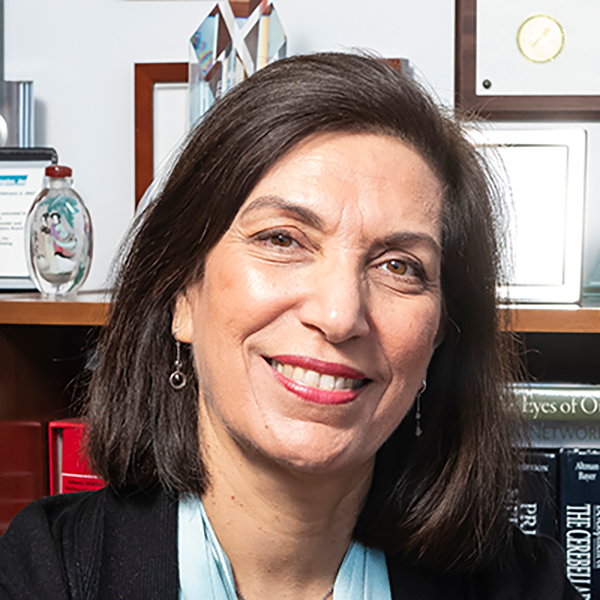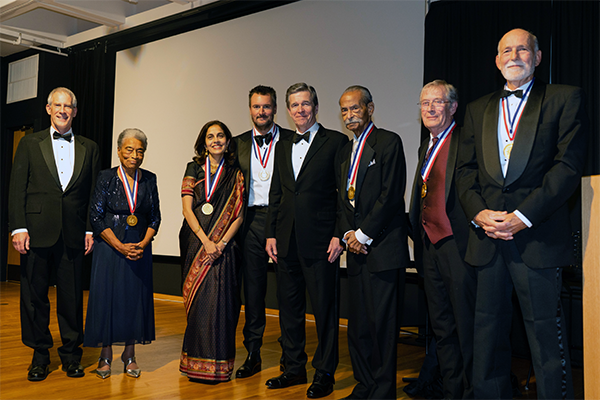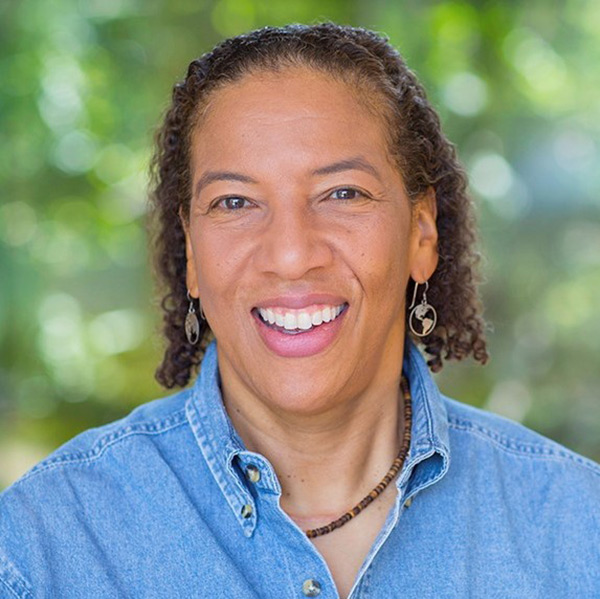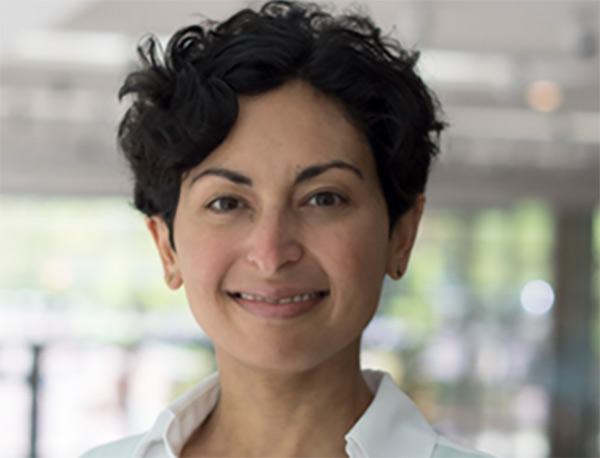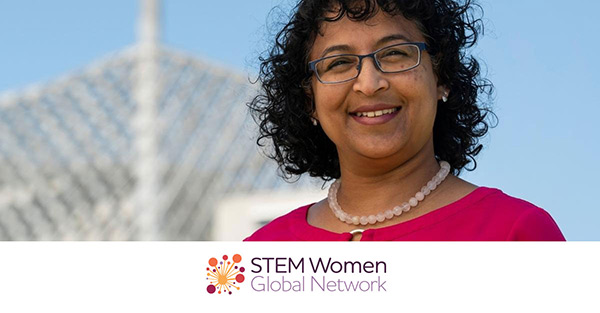|
Dear Colleagues, I am pleased to include another issue of RFS Briefings with some timely and encouraging updates on women in science. Equity and representation in science matter more than ever, and the Rosalind Franklin Society continues its mission to recognize, foster, and advance the critical contributions of women and underrepresented minorities in science. Our annual year-end conference highlights the innovators and changemakers with unique experiences and leadership. Join us for this indispensable, two-day complimentary virtual summit (November 30 and December 1) showcasing dynamic leaders. The program includes an impressive line-up of prestigious award winners in science, as well as a panel to highlight the unique path of scientists navigating the often-tumultuous waters of PhD to CEO. You will also want to hear first-hand accounts from major new appointments in the federal government and tune in to the presentation that shows a fascinating look back at the Lost Women of Science.
Please continue to share important news and opportunities with us so that we may share it with you and others who are committed to supporting the careers of exceptional women in science.
Karla Shepard Rubinger  Priya Kishnani receives 2022 North Carolina Award for Science.
Congratulations to Priya Kishnani, MD, MBBS, Chen Family Distinguished Professor of Pediatrics and chief of the Division of Medical Genetics at the Duke University School of Medicine. She received one of North Carolina’s highest civilian honors, the North Carolina Award, on November 15 for her contributions to science. As the lead principal investigator, Kishnani designed and conducted clinical trials that led to the first-ever FDA-approved treatment for Pompe disease. Read more. Call for nominations for the Lasker Awards. Call for nominations: The 2023 Vilcek-Gold Award for Humanism in Healthcare. Does anything live at the bottom of the ocean?
Oceanographer Dawn Wright talks with film producer Jeffrey Silver about what life forms she saw on her recent dive to the bottom of the ocean in the latest #AskAScientist episode. Read more.(Photo by American Academy of Arts & Sciences) Celebrating Marie Tharp.
Marie Tharp put ocean floors on the map. This interactive #GoogleDoodle celebrates Marie Tharp—American geologist and cartographer who found evidence of continental drift along the seafloor. Learn more about her life's work here. Photo: Marie Tharp. Courtesy of Lamont-Doherty Earth Observatory and the estate of Marie Tharp The feminist test we keep failing: Lost Women of Science Podcast, Season 3 Bonus Episode. We’re living in a new era for women in space, on screen and off. Science couldn't save her, so she became a scientist.
Eric Minikel and Sonia Vallabh are Ph.D. students in Stuart Schreiber's laboratory at the Broad Institute. In 2010, Sonia’s mother abruptly developed and died of prion disease. The following year, Sonia learned she had the same mutation that caused her mother’s disease. Thus, Sonia and her husband Eric began studying biology, with the long-term goal of designing small molecule therapeutics for prion diseases. Sonia Vallabh and Eric Minikel join Short Wave to tell their story in this second of three episodes on prion disease. Read more. (Photo: Broad Institute) Raising the profile of women in STEM across the globe.
Women working in STEM fields will be able to raise their profile and discover opportunities to progress their careers following the launch of STEM Women Global in November. STEM Women Global is an initiative of the Australian Academy of Science with the support of the InterAcademy Partnership (IAP), the Association of Academies and Societies of Sciences in Asia (AASSA), the Network of African Science Academies (NASAC) and the Inter-American Network of Academies of Sciences (IANAS). Read more. Photo: Pamela Naidoo-Ameglio, Group Executive of the Nuclear Precinct at the Australian Nuclear Science and Technology Organisation (ANSTO). Marianna Limas, Social Media Manager |

